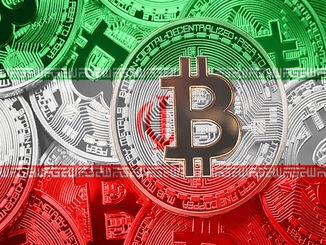Venezuela isn’t the only country that will be developing its own national cryptocurrency. Iran has once again proclaimed that it, too, intends to develop its own national cryptocurrency with the aim of evading US sanctions. How exactly the country intends to do that remains unclear. The timeline of the cryptocurrency’s development hasn’t been publicized either, so it’s unsure whether, like many projects Iran claims to develop, it will ever come to fruition.
There are two things to keep in mind when analyzing Iran’s cryptocurrency plans. First, the country has taken a skeptical stance towards Bitcoin, trying to shut down Bitcoin use within the country and forbidding banks from dealing with Bitcoin businesses. In that sense Iran isn’t unusual, as one would expect an autocratic country to seek to control monetary matters and crack down on any competition. That’s particularly true for a country that is suffering the effects of sanctions and relies largely on monetary policy to try to overcome sanctions’ effects.
That brings us to the second thing to keep in mind, which is that one of those effects of sanctions is the lack of foreign exchange that has resulted from restrictions on Iran’s ability to export oil and goods and the country’s being cut off from the Western banking system. Without foreign exchange (dollars and euros) Iranian businesses will find it difficult if not impossible to purchase vital foods and medical supplies from abroad.
It appears that the Iranian cryptocurrency scheme is intended to somehow induce people to part with foreign currency in exchange for the new government cryptocurrency. Whether people will do that remains to be seen, particularly given the Iranian government’s mismanagement of its existing national currency.
Still, for investors in cryptocurrencies such as Bitcoin, the fact that national governments are getting in on the cryptocurrency wave is good news overall for the continued adoption of cryptocurrencies worldwide. It’s yet one more sign that cryptocurrencies are indeed the wave of the future.
This article was originally posted on Coin IRA.





